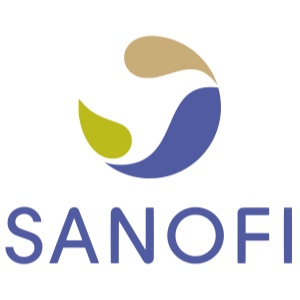Biond Biologics and Sanofi Enter into Global Licensing Agreement for BND-22, a Novel Immune Checkpoint Inhibitor Targeting the ILT2 Receptor
Biond Biologics has signed an exclusive worldwide license agreement with Sanofi (SNY) for the development of BND-22, a humanized IgG4 antibody aimed at treating solid tumors. Biond will receive a $125 million upfront payment and potentially over $1 billion in milestones and royalties. BND-22 targets the inhibitory ILT2 receptor and has shown promising preclinical results by activating immune responses against tumors. The first-in-human phase 1a study is set to start by mid-2021, with Sanofi overseeing later clinical development.
- Biond receives a $125 million upfront payment from Sanofi.
- Potential to earn over $1 billion in development and sales milestones.
- BND-22 shows broad anti-tumor effects in preclinical studies.
- Biond will lead phase 1a study for BND-22, enhancing its role in clinical development.
- None.
Insights
Analyzing...
MISGAV, Israel, Jan. 12, 2021 /PRNewswire/ -- Biond Biologics Ltd. ("Biond" or the "Company"), a privately-held biopharmaceutical company, developing novel immunotherapies for cancer and a platform enabling the intracellular delivery of biologics, today announced that it has entered into an exclusive worldwide license agreement with Sanofi (EURONEXT: SAN) (NASDAQ: SNY), for the development and commercialization of BND-22.
BND-22 is a humanized IgG4, antagonist antibody targeting the Ig-like transcript 2 (ILT2) receptor in development for the treatment of solid tumors. ILT2, a member of the ILT family of immuno-modulating receptors, is an inhibitory receptor expressed on both innate and adaptive immune cells that binds MHC class I molecules including HLA-G, an immunosuppressive protein expressed by multiple tumor types.
Under the terms of the agreement, Biond will receive a
BND-22 has been shown in preclinical studies to have a broad anti-tumor effect by targeting ILT2-mediated "do not eat me" signals in macrophages and by activating natural killer (NK) and CD8+ lymphocytes. The program is supported by a comprehensive biomarker strategy designed to guide patient enrollment in advanced clinical trials. An Investigational New Drug (IND) application for BND-22 has recently been submitted to FDA and a phase 1 study to evaluate the safety, tolerability, and preliminary anti-tumor activity of BND-22 in advanced cancer patients is planned to start by mid-2021.
"We are thrilled to partner with Sanofi, an organization with a global footprint and exceptional drug development and commercialization capabilities," said Ori Shilo, Co-Founder and Chief Financial Officer at Biond. "We believe this collaboration creates substantial value for our shareholders and validates Biond's long term strategy to establish valuable partnerships with leading biopharmaceutical companies."
"The emphasis in the development of cancer immunotherapies has been placed so far mainly on drugs that stimulate the adaptive immune system to attack malignant cells, in particular T lymphocytes. Unfortunately, many advanced cancer patients do not derive a durable benefit from these drugs," said Tehila Ben-Moshe, Ph.D., Co-Founder and Chief Executive Officer at Biond. "Biond Biologics was founded with a unique model that enables focused development of breakthrough cancer therapies, reaching clinical trials more quickly. BND-22, the first clinical drug candidate to graduate Biond's development model, is a novel immunotherapy that targets both adaptive and innate immune cells and takes advantage of the anti-tumor activity of not only T cells but also that of additional immune cells, such as NK cells and macrophages. We look forward to progressing BND-22 into the clinic together with our new partner Sanofi, using our in-depth knowledge of the ILT2 pathway and expertise in immuno-oncology."
About Biond Biologics
Biond Biologics is a drug discovery and development company focused on developing innovative therapies for novel oncology targets by uncovering immunoregulatory pathways and by enabling the intracellular delivery of biologics. Biond aims to translate high quality science and out-of-the-box, disruptive thinking into transformational drugs for diseases with high unmet needs. The company's vision is to deliver innovative medicines to patients while fostering synergistic long-term collaborations with leading biopharmaceutical companies.
Biond's pipeline is based on internal research of newly discovered immune-checkpoints and immune-evasion mechanisms. Biond's leading development programs include BND-22, a multi-cell checkpoint inhibitor targeting ILT2, and BION-206, a novel agent developed for overcoming PD-1 blockade resistance by targeting soluble CD28; an immune evasion mechanism discovered by Biond scientists.
In addition to its pipeline of immunotherapy agents, Biond is developing INspire – an innovative technological platform that enables the intracellular delivery of biologic agents into cells. INspire is based on a chemically modified carrier protein that can be conjugated to protein therapeutics, such as antibodies or enzymes, and is designed to deliver the conjugated therapeutic inside cells thus providing access to numerous, critical disease targets currently considered "undruggable".
Biond was founded in 2016, by Tehila Ben-Moshe, Ph.D., Ori Shilo, and a team of accomplished scientists and drug developers from the Israel biopharmaceutical industry. The lead investors in the company are Israel Biotech fund ("IBF") and Harel Insurance. For more information, visit www.biondbio.com.
Company contact:
Itay Friedman, M.D.
VP Clinical Development
Biond Biologics Ltd.
+972-4 884 4337
itay@biondbio.com
![]() View original content:http://www.prnewswire.com/news-releases/biond-biologics-and-sanofi-enter-into-global-licensing-agreement-for-bnd-22-a-novel-immune-checkpoint-inhibitor-targeting-the-ilt2-receptor-301206200.html
View original content:http://www.prnewswire.com/news-releases/biond-biologics-and-sanofi-enter-into-global-licensing-agreement-for-bnd-22-a-novel-immune-checkpoint-inhibitor-targeting-the-ilt2-receptor-301206200.html
SOURCE Biond Biologics Ltd.






